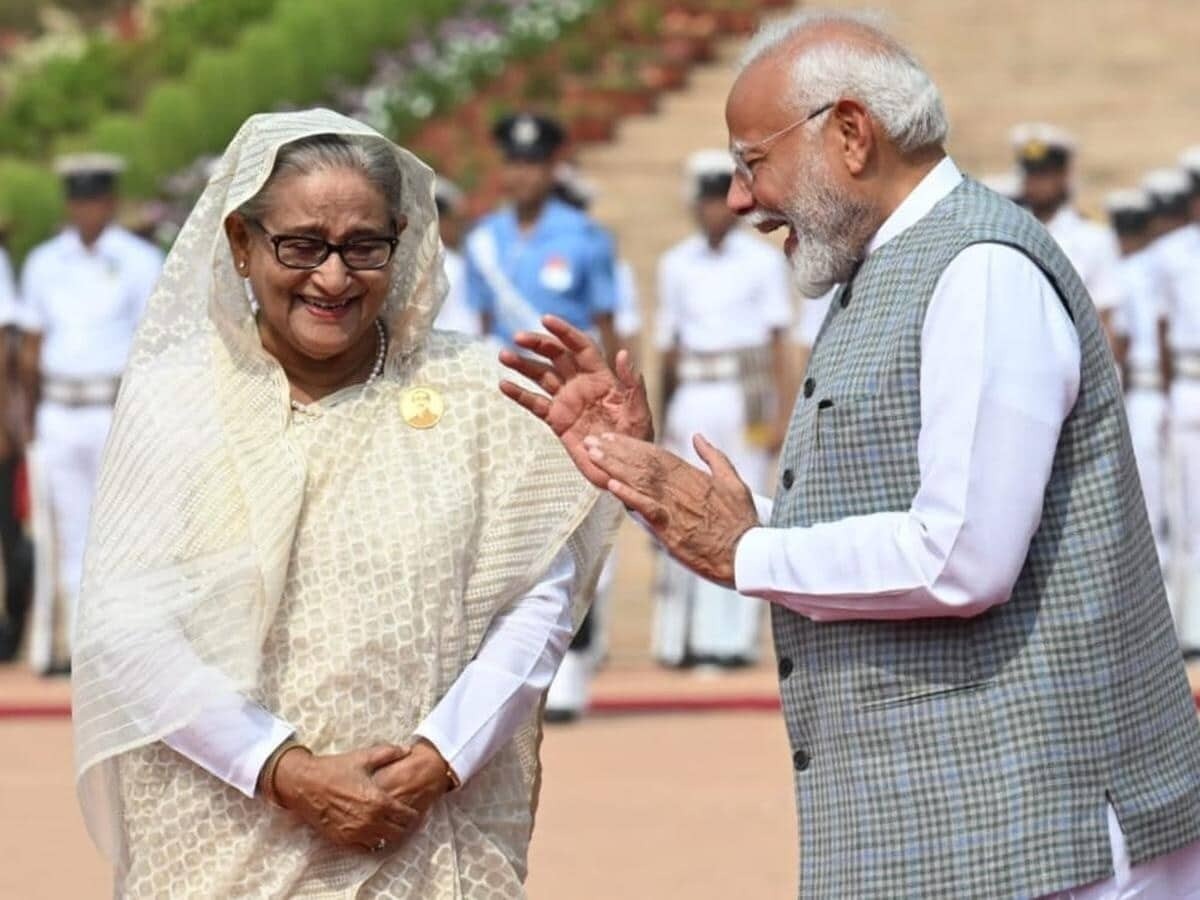The interim government of Bangladesh, led by Nobel laureate Mohammad Yunus, has demanded the return of former Prime Minister Sheikh Hasina. Currently Sheikh Hasina is in India. She reached Hindon Airbase in Ghaziabad by Air Force helicopter after the coup on August 5 and since then has been living at an undisclosed place in Delhi. The government of Bangladesh recently requested their return through a diplomatic note, but the Indian government has not responded.
India’s position: disagreement on extradition
According to government sources, the Indian government is not considering sending Sheikh Hasina back to Bangladesh. Despite pressure from the interim government of Bangladesh, India’s position is based on some solid reasons:
- The extradition treaty does not cover the return of political persons:
There is an extradition treaty between India and Bangladesh, but it does not provide for the return of political figures. - Geopolitical reasons:
India believes that if the situation changes in Bangladesh in future, Sheikh Hasina may return to power. In such a situation, their role will be strategically important for India. - Control over radical forces:
Sheikh Hasina had effectively reined in fundamentalist forces in Bangladesh during her 15-year rule. This has been a positive aspect for India, which it cannot forget.
Historical relation between India and Sheikh Hasina
Sheikh Hasina has a long relationship with India. He has spent time in India before. Many of his family members, such as his son and daughter, have also lived in India. After the coup, India was the most comfortable and safe place for them.
While in India, Sheikh Hasina will get an opportunity to influence the politics of Bangladesh. His influence can not only bring stability to Bangladesh but also maintain the cooperation and agreements reached with India during his previous tenure.
Achievements of Sheikh Hasina’s reign
- Controlling Radicalism:
Sheikh Hasina played a big role in controlling radical organizations. - Peaceful resolution of border disputes:
During his tenure, border disputes between India and Bangladesh were resolved. - Increase in business relations:
Trade between India and Bangladesh grew rapidly during his reign, benefiting both countries.
India’s stand: Strategy to buy time
India may choose to postpone its decision. India can buy time by saying it will consider the extradition request. In the meantime, he will evaluate the circumstances and try to keep the situation balanced.
Indian tradition: welcoming guests
India has long kept its doors open to asylum seekers.
- Example of Dalai Lama:
In 1959, India gave shelter to Tibetan religious leader Dalai Lama and thousands of Tibetan refugees. He is still living in India. - Sheikh Hasina case:
Under this tradition, Sheikh Hasina has also been given asylum in India.
future prospects
Although the interim government of Bangladesh is pressing for her extradition, from a geopolitical perspective there is a possibility that Sheikh Hasina may return to Bangladesh in a few years. India understands that Sheikh Hasina’s political future could be important not only for Bangladesh, but also for regional stability.
conclusion
Amid Sheikh Hasina’s presence in India and Bangladesh’s demand for her extradition, India has maintained its traditional hospitality and strategic thinking. Even if the interim government puts pressure, India will not agree on this issue.
 look news india
look news india
